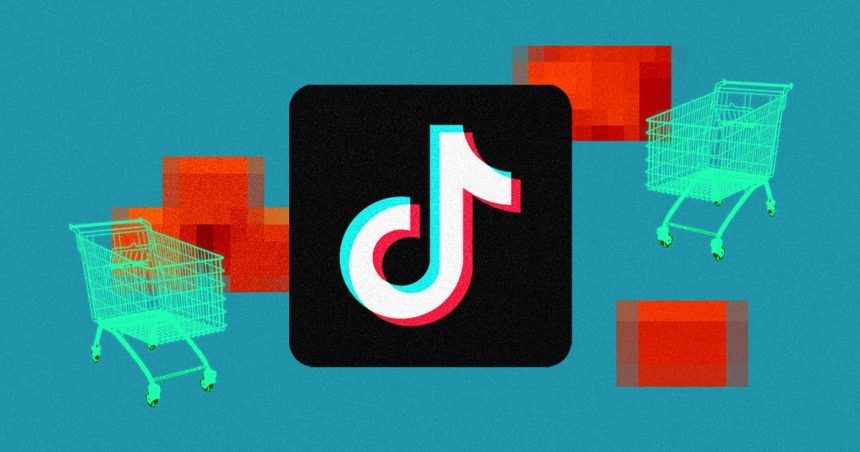Menstrual products are a normal part of health routines for half the population. But online and in advertising, they remain largely taboo.
Nadya Okamoto, co-founder of period-care brand August, created the brand as part of a decade-long mission to help destigmatize periods. At 16, she started the nonprofit Period.org, and at 20, she wrote a book aimed at bringing attention to inequities like states taxing tampons as luxury items rather than necessities. Now, as a 26-year-old business owner, Okamoto said she’s seen period-care brands miscategorized and stigmatized in the advertising world.
Okamoto said that August was marked for violations and had its listings frozen on TikTok Shop in May after just one week on the platform (TikTok includes feminine-care products on its list of prohibited products for TikTok Shop). TikTok had not provided comment at publication time. On Hulu, she said one of the brand’s CTV ads that showed fake blood was recently flagged for “violent and graphic content.” Hulu did not respond to Marketing Brew’s request for comment. In other cases, she said she’s seen period-care products face the same restrictions as products like sex toys and vapes.
“This is representative of a much larger challenge as a period-care brand,” Okamoto said. “This category is so synonymous with something inappropriate that, in everything from advertising to CTV, social media, and shoppability, there are just so many restrictions, which makes it super challenging.”
Because of the marketing challenges, August has relied mostly on organic strategies online and IRL as it fights to be categorized as a beauty, personal care, and wellness brand. Posting, selling, and advertising online not only helps support the businesses of period-care companies like August, Okamoto said, but can also help young people in need of information.
“I’ve been advocating for things like this, to take away restrictions so that we can talk about periods and talk about education, for 10 fucking years,” Okamoto said. “We have made progress, and I don’t want to lose sight of that, but it does feel like a never-ending battle.”
100% organic cotton info
On her personal accounts, where she’s racked up more than 5 million followers across TikTok, Instagram, Snapchat, and YouTube combined, Okamoto regularly posts informative content around period care—and she said she has faced restrictions of her own on other platforms like YouTube and Snapchat on content showing period products or anything resembling blood.
Google spokesperson Nate Funkhouser told us in an email that YouTube’s “advertiser-friendly guidelines allow for the monetization of content containing menstrual products, such as tampons or pads.” He added that “if a creator thinks we’ve made a mistake in our enforcement, we provide an option to appeal.”
Get marketing news you’ll actually want to read
Marketing Brew informs marketing pros of the latest on brand strategy, social media, and ad tech via our weekday newsletter, virtual events, marketing conferences, and digital guides.
Snap spokesperson Ashley Adams said in an email that “content depicting bodily fluids is not typically eligible for recommendation on Spotlight, but [Snap is] actively evolving [its] content policies in recognition of the need to destigmatize conversations around menstruation.”
When content has been flagged or removed in the past, Okamoto said she hasn’t always been able to reach someone at the platforms to resolve the issue.
Utilizing Okamoto’s following, particularly on TikTok, has been a major organic strategy for August since it started in 2021. At one point, Okamoto said she was posting up to 100 times a day. “That is how we grow the brand: through organic storytelling and education,” she said. It’s about “meeting people where they’re at with their own curiosity and experience with periods.”
As more legislative restrictions are placed on sex ed and reproductive rights, Okamoto has felt even more compelled to post. She said that nearly half of her followers are between 18 and 24, most are women, and two of her top cities are in Texas, where sex ed is opt-in by school.
“There are so many basic questions that people turn to the internet to ask because they don’t have that education in school or at home or with their doctor,” Okamoto said. “That is something that’s been a huge opportunity that we’ve waded into.”
As the face of the brand, Okamoto recently went on a road trip across the country, driving three to six hours a day to help spread the word about August at Target stores, where the brand is sold. That trip, she said, led to an increase in 20k followers for her and 5k for the brand. “We need to be creative and really scrappy because we don’t have the money to do big influencer deals or brand trips,” she said, adding that the brand has a “zero-dollar events budget.”.
To further engage its community, Okamoto said August uses the group-chat app Geneva and is focused on building brand awareness on TikTok. Still, being able to monetize August on the platform, she said, would “fundamentally change” the way the brand uses it, she said, adding that she wants to be able to “kill it” on TikTok Shop the way she’s seen beauty brands profit from it.
“There’s a reason why there are so many beauty brands,” she said. “There aren’t a lot of period-care brands.”
Read the full article here










